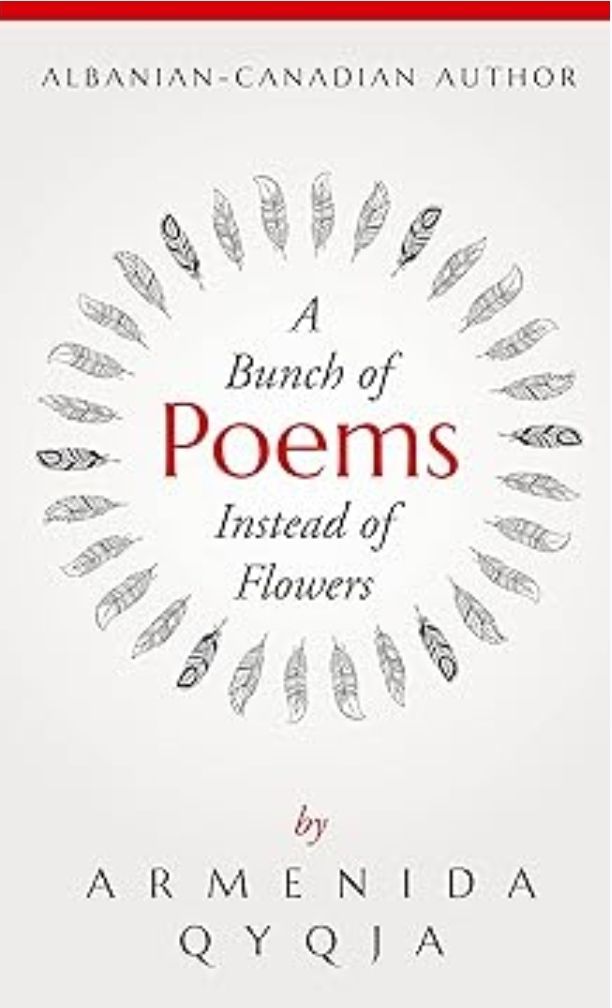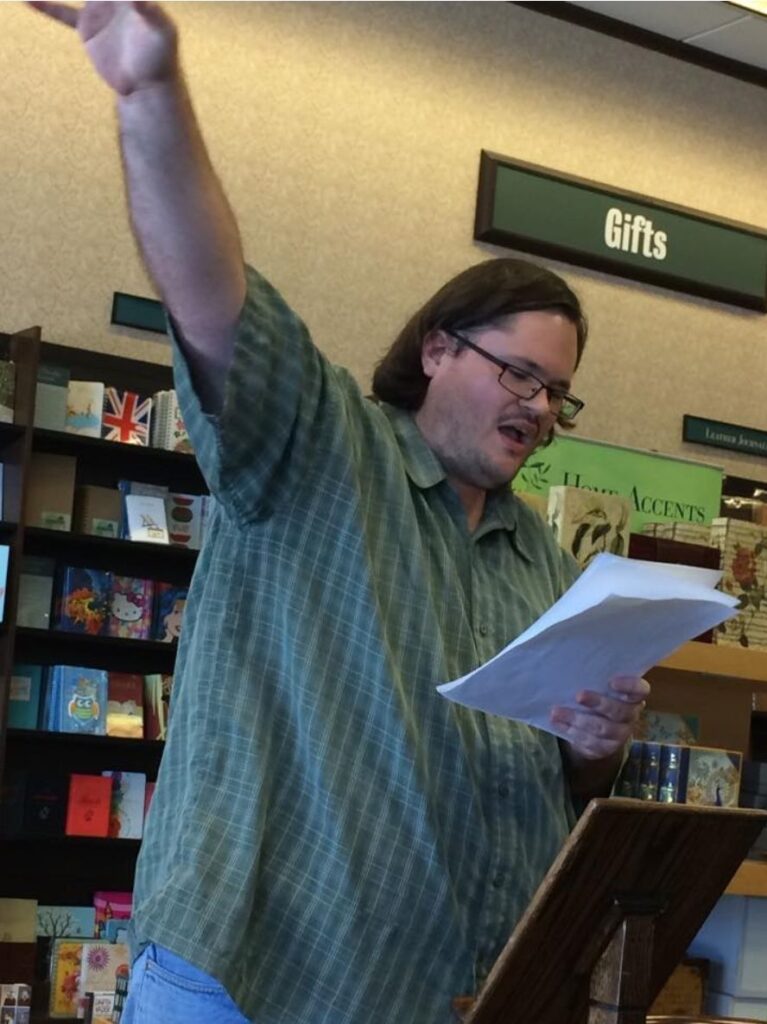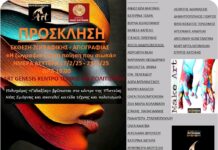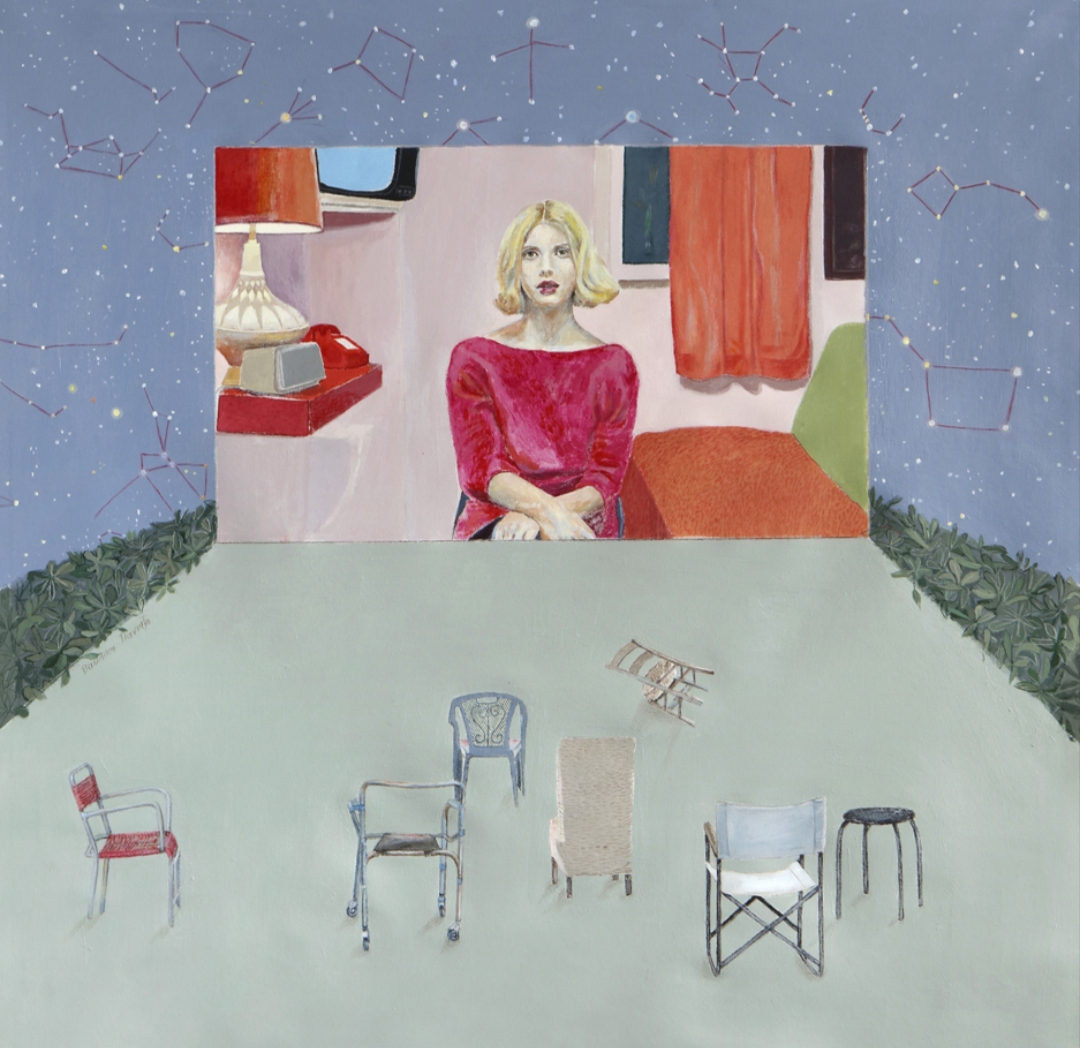Επιμέλεια: Εύα Πετροπούλου Λιανού
Timelessly Encrypted Verses review of A Bunch of Poems Instead of Flowers by Armenida Qyqja
reviewer: Dustin Pickering
As the title suggests, A Bunch of Poems Instead of Flowers is a collection invoking love’s universal qualities. Even in these troubled and doubtful times, love’s omnipresence and universality carries significance. It heals, unifies, and most of all poeticizes freely. Armenida Qyqja poems idolize her loved one, but this personal feeling delves into themes of authenticity and myth as well as invoking geology to embrace her subtlest emotions.
In poems such as “Come, with White Wings” and “Breath in Me” Qyqja embrace ecstatic emotion. “Breath in me, let’s get higher with each kiss…” suggests ascent to emotional heights. These heights can be painful: “Left on the ceiling are the tears of time” she writes in the opening verse “The Tears of Time”. Cosmological heights seem distant in “Come, with White Wings” where “The stars can never be reached / Or substituted…” The stars represent future time. These poems are passion’s present moment.

The poet embraces authenticity and urges readers to do likewise. In “Like Many Others” she writes:
“You too, betrayed yourself,
Ordinarily, like many others
That get tired and forget to live,
Inside the character they’ve crafted.”
These lines offer contemplation on the commonality of pretension. Social norms create a false persona for all of us. This “ordinary” betrayal is the easy route; the poet elaborates, “Hard is the road of the soul.” Authenticity requires living fully as poems such as “Live” note: “My love, pick up your pieces and live! / We have all been torn by the world,” Qyqja writes. This tells us the selfhood we value is taken for granted and fragmented in fake relationships. Love bears the quality of passion that makes someone authentic. Passion is interiorized with the loved one by Qyqja. In “Inside My Eyes” she writes:
“I investigate the silence that has drawn down on us,
The words that try to flee behind its curtain,
The lights, that I don’t where they go, to put themselves out
Taking with them even the hieroglyphics….”
Silence becomes the height of passion, or ecstasy. In “Empty Days” she writes, “In my reflection I feel the shriveling of time…” offering that love is timeless and deep. “The stones of silence / Are taking root inside of my soul…” (“The Stones of Silence”) the poet writes, internalizing the loved one through silence and idolization.
Poetic devices parallel her themes of universality and unity of love. Qyqja uses synesthesia in poems such as “You Love Me” and “Under the Prints of Kisses and Waitings”. Phrases such as “sad melody of my breath” and “the colors of my voice” unify sensation. “This autumn etude that is playing on its way / Wets your sleepy image” she writes, unifying emotion and abstraction expertly. Synesthesia combines senses, and is defined by one sense triggering another. Using this as a poetic device unifies human experience through the personal love of poet and her loved one.
Love is heroic in A Bunch of Poems Instead of Flowers. In “Voice of the Heart” imagery from warfare is suggestive of human emotion: “Lower your sword, the proud shield / Engraved let the triumphs be all over it […]” This suggests an historicity to the nature of love. Wounds from love carry triumphs and memories. “Europe in Mourning” is social commentary about coronavirus and social turmoil in Europe: “In mourning, the statues lowered their heads, from Louvre to Vienna” writes Qyqja to illumine the historical importance of our current predicament. “Each one has only cried his own end, / Licking only his own wounds…” she writes in “How Soon We Forget”, again highlighting the selfless nature of authenticity. This poem also offers self interest as a means of resistance to death and traumatic events:
“Stubborn, hard rock headed this humankind keeps rolling,
Unchanged even from the atomic bombs,
with its own hands, embroids its own coffin,
And then it cries as it starts to feel the pain inside of it…”
The poem also reflects on stubbornness in human nature, presenting a paradox through its ambiguity.

The poet’s uses of sensual unity and historical allusions suggest congruity and convergence of humankind with its concerns. While these poems are not to be balked at, their singular weakness is the deep focus on the personal nature of emotions. Interior life is difficult to merge with social life even through poetry. Qyqja uses concepts such as authenticity and imagery from mythology and history to craft poetry that speaks for personal feeling. Some say ‘the personal is the political’ but these poems are personal emotion frequently situated within universal social criticisms. This weakness does not detract the subtle language and emotion conveyed. A Bunch of Poems Instead of Flowers presents complex and deep feeling while offering criticism of stubborn behaviors that hamper our experience of living. Love’s strength will bear us through troubled times.
About the author: Armenida Qyqja was born in Tirana, Albania in 1977 and immigrated to Canada in 1995. She is the author of eight poetry books: “Beyond the rails of rain”, “Letters without envelopes” “Between the heart beats”, “Kisses in ether”, “Forty plus” “Sizif of my soul” “Return the heart to spring” “Upon a half-head of a bunker”, two books of short stories: “The laughing dead” and “Piles of Ash” and a collection of poems in English “A bunch of poems instead of flowers”.
About the reviewer: Dustin Pickering is founder of Transcendent Zero Press. He has contributed writing to Huffington Post, Los Angeles Review, The Statesman (India), Journal of Liberty and International Affairs, The Colorado Review, World Literature Today, Asymptote and several other publications. His is author of numerous poetry collections and books including Salt and Sorrow, and Crime of the Extraordinary is his most recent collection. He placed in the top 100 for the erbacce prize in 2021 and 2023, and was a finalist in Adelaide Literary Journal’s first short fiction contest. He was longlisted for the Rahim Karim World Prize in 2022 and given the honor of Knight of World Peace by the World Institute for Peace that same year. He hosts the popular interview series World Inkers Network on YouTube and co-founded World Inkers Printing and Publishing.





























